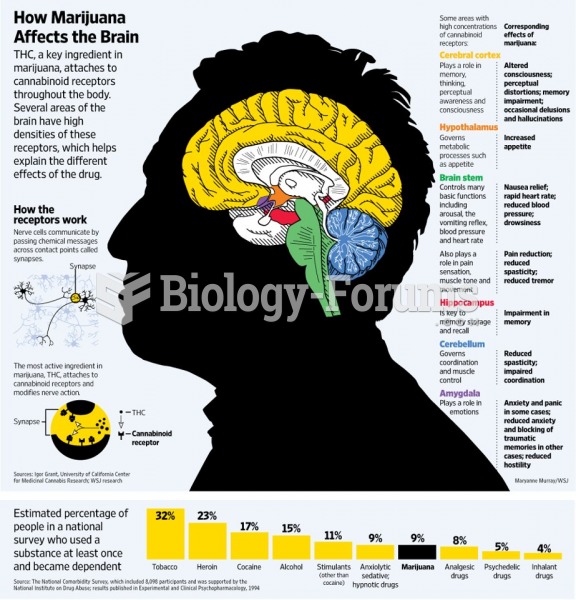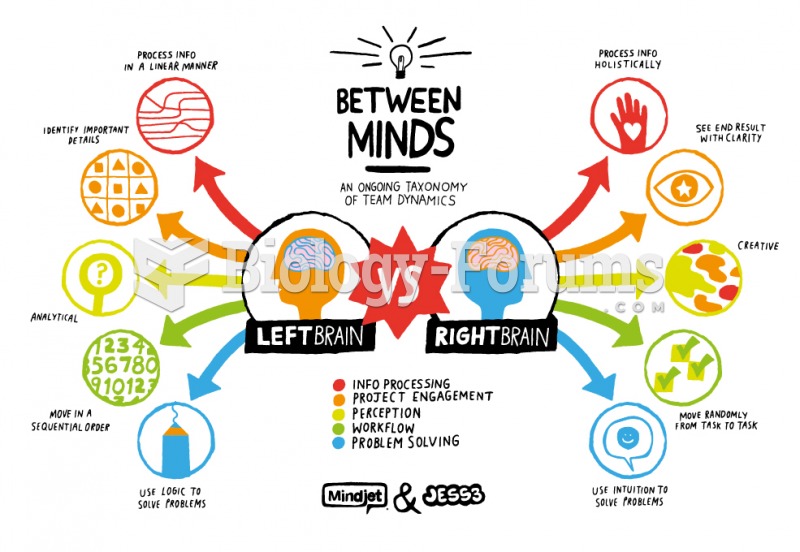|
|
|
Approximately one in three babies in the United States is now delivered by cesarean section. The number of cesarean sections in the United States has risen 46% since 1996.
Computer programs are available that crosscheck a new drug's possible trade name with all other trade names currently available. These programs detect dangerous similarities between names and alert the manufacturer of the drug.
There are more bacteria in your mouth than there are people in the world.
Pope Sylvester II tried to introduce Arabic numbers into Europe between the years 999 and 1003, but their use did not catch on for a few more centuries, and Roman numerals continued to be the primary number system.
Alcohol acts as a diuretic. Eight ounces of water is needed to metabolize just 1 ounce of alcohol.
 European Rabbit in Shropshire, England, infected with myxomatosis, a disease caused by the Myxoma vi
European Rabbit in Shropshire, England, infected with myxomatosis, a disease caused by the Myxoma vi
 Major features of Homo erectus include increased brain size, an angular vault, and cranial superstru
Major features of Homo erectus include increased brain size, an angular vault, and cranial superstru





